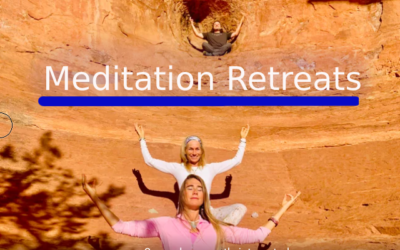Addictions are a tough nut to crack.
And they are especially challenging for two reasons not often mentioned.
First is 'delay discounting.' In behavioural economics this is also known as hyperbolic discounting. This is about the tendency for humans, mammals, and birds to value immediate rewards over long term benefits.

For example do you want $20 now or $50 in two months?
We all know that $50 is greater than $20 but the immediacy of the $20 makes it more appealing.
Here is another example.
We all know smoking is bad but the bad effects don't kick in for many years or decades down the road and so the immediate payoff of having a cigarette now is quite appealing because the downside doesn't arrive until much later.
If cancer was developed after 5 minutes of smoking, people wouldn't smoke because it's penalties would be instant instead of years down the road.
We value the future benefits/drawbacks a lot less. That's the gist of delay discounting. And it can apply to anything where we have to make a decision, including investing.
Should we put our money into an index fund so that it can grow and compound over time or instead get a fancy purse, car, or iPhone since those have instant benefits?
Ideally the best move is to invest the money and then buy the toys with the dividends so you can have your cake and eat it too, but that isn't as attractive as getting the new shiny things right now.
The main reason creatures have this proclivity is because our nature is to make babies so the idea of postponing things would run counter to that agenda.
Should we have sex while we have the opportunity or wait until we're educated and financially secure?
Sex now!!! The creatures that favoured the immediate reward of sex over postponement had a greater chance for reproducing and over time, those that took advantage of instant mating opportunities had a better chance to put their genes forward into the next generation. This feature is essential for a species that needs to think, act fast, survive and prosper in a world of multiple options.
This hyperbolic discounting is a big reason why it can be difficult to quit addictions.
Every addict knows that if they quit the addiction to their ex, drugs, alcohol, gambling, video games, smart phones etc. that they will have happier, healthier relationships, physical health, self-respect, time for other pursuits, money in the bank and less jail time. But all those wonderful future rewards are stripped of value by the sparkling promise of the immediate goal.
It's easier to contact the ex now than find a new mate.
It's easier to get instant relief by surrendering to the craving than to exercise willpower.
A tryst with an intern now is more appealing than going home to the wife after a days work.
Just ask Bill Clinton.
What drives this maladaptive decision making?
This is largely attributed to a part in the brain called the nucleus accumbens. This part evolved to get us to go for low hanging fruit and available sexual partners, whichever is most accessible, and this habit has kept to this day. 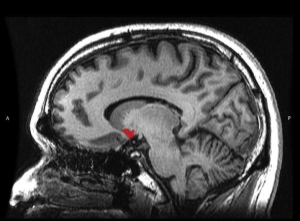
This type of excessively now-oriented behaviour and greater influence of delay discounting behaviour is found quite strongly in addicts. (1)
(1) (Psychopharmacology. Delayed reward discounting and addictive behavior: a meta-analysis. MacKillop J, Amlung MT, Few LR, Ray LA, Sweet LH, Munafò MR. https://www.ncbi.nlm.nih.gov/pubmed/21373791)
The second challenge to overcoming addictions is 'ego fatigue' or 'ego depletion' or self-control depletion.
A research study by Psychologist Roy Baumeister illustrates this point.
A couple groups of people are put in front of a plate of radishes and freshly baked cookies.
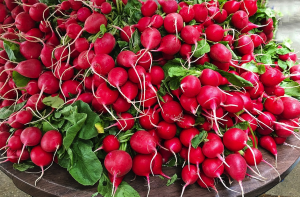

One group of people can eat radishes but not cookies.
The other group can eat cookies or radishes.
The group of people who ate radishes and suppressed the impulse to eat cookies failed miserably on later tasks involving error detections. In other words, they used up their energy suppressing the desire to eat cookies and consequently had no energy left to do simple tasks. Suppressing takes energy. Willpower takes energy. When you run out of willpower, the craving wins and the addictive cycle gets reinforced. Will power has limited power and when you run out, you run out for cigarettes, drugs, alcohol, a lottery ticket or the ex. Willpower is a limited resource. (2)
(2)https://www.theatlantic.com/health/archive/2012/04/the-chocolate-and-radish-experiment-that-birthed-the-modern-conception-of-willpower/255544/
The fMRI scans show a more precise picture.
'...brainwaves that indicate self-regulation, measured while people were trying to avoid mistakes, became weaker with ego fatigue, but only when they tried to suppress their feelings.' The Biology of Desire, Why Addiction is Not a Disease by Neuroscientist Marc Lewis.
Ego fatigue increases activation in the brain areas devoted to emotional meaning, - the amygdala and the orbitofrontal cortex 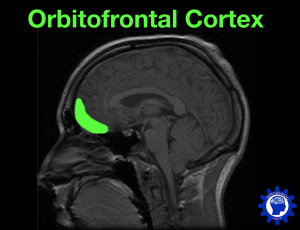 - while simultaneously reducing the communication between these areas and the dorsolateral prefrontal cortex, where information, insight and self-control are brought together. This is like driving but the steering wheel isn't really attached.
- while simultaneously reducing the communication between these areas and the dorsolateral prefrontal cortex, where information, insight and self-control are brought together. This is like driving but the steering wheel isn't really attached.
This disengagement of the dorsolateral pfc from the motivational core of the brain has been found repeatedly in addicts of all types. And it occurs in binge eaters.
The dorsolateral PFC goes offline, self-control breaks down and after a couple days of self-restraint, there is a shift from suppression to bingeing. 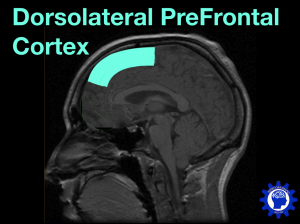 The food gets eaten, the ex-lover is called, the coke gets snorted, the heroin gets injected, the bets are placed and the smokes get smoked.
The food gets eaten, the ex-lover is called, the coke gets snorted, the heroin gets injected, the bets are placed and the smokes get smoked.
How to overcome hyperbolic discounting and ego fatigue?
As Dr James Prochaska learned with addictions and the stages of change model, people overcome addictions by having something better to do.
Vietnam veterans that were hooked on heroin kicked that habit when they came home to their wife and kids. (3,4.)
(3. Kuzmarov J. The myth of the ‘addicted army’: drug use in Vietnam in historical perspective. War Society 2007; 26:121–41.)
(4. Lee N. Robins, Darlene H. Davis, and David N. Nurco, “Robins L. N. The Vietnam drug user returns: final report,September 1973. Lee N. Robins et al., “Vietnam Veterans Three Years after Vietnam: How Our Study Changed Our View of Heroin,” American Journal on Addictions 19, no. 3 (2010), doi:10.1111/j.1521–0391.2010.00046.x.)
Apparently raising children and spending time with a spouse is more rewarding than poking smack.
Robert Downey Jr kicked his drug habits by switching to higher value activities such as rebuilding his career.
Instead of languishing as a drug addict he became an A list movie star.
Trent Reznor, the singer for Nine Inch Nails had a heroin overdose. That was his wakeup call to drop the syringe, go to rehab and get back to being a fit rockstar.
Eminem was addicted to pain killers and other drugs. He went to drug rehab after friends convinced him that his drug use was a problem. Elton John had befriended him and convinced him to seek treatment after sharing his own celebrity addiction and recovery story. After cleaning up, Eminem released two albums, Relapse and another one called Recovery. Making hit records is more rewarding than the high from drugs.
Apart from building an exciting future, what quick fixes are there to increase willpower to overcome addictions?
According to psychologist Roy Baumeister, one fast solution is a glass of lemonade. Why?
"Glucose is the chemical in the bloodstream that carries energy to the brain, muscles and other organs and systems. In simple terms, glucose is fuel for the brain. Acts of self-control reduce blood glucose levels. Low levels of glucose predict poor performance on self-control tasks and tests. Replenishing glucose, even just with a glass of lemonade, improves self-control performance." (5)
(5) https://www.apa.org/monitor/2012/01/self-control
If you are in the United States and seeking help to recover from an addiction, you might want to consider calling a rehab clinic.
For more information call: 888-334-5730 United States Rehab Clinic Toll Free number
The 5-Day Re-Invent Meditation Retreat in Sedona, Arizona
Nestled in the heart of...
Benefits of Journaling
Journaling is a powerful...
How to Get Over the Death of a Service Dog like a Vietnam Veteran in 78 minutes.
This is an excerpt about...
How to Cure PTSD Four Times in 5 Hours
This case study shows how...
The Ultimate Guide to Walking with a Weighted Vest for Maximum Fitness Benefits
Walking with a weighted...
The Audiobook Market’s Adaptation to Cultural Changes
Today, we're going to...

